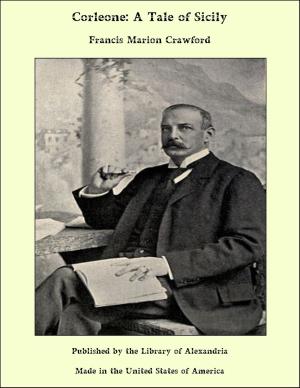Government in the United States: National, State and Local
Nonfiction, Religion & Spirituality, New Age, History, Fiction & Literature| Author: | James Wilford Garner | ISBN: | 9781465510907 |
| Publisher: | Library of Alexandria | Publication: | March 8, 2015 |
| Imprint: | Language: | English |
| Author: | James Wilford Garner |
| ISBN: | 9781465510907 |
| Publisher: | Library of Alexandria |
| Publication: | March 8, 2015 |
| Imprint: | |
| Language: | English |
Kinds of Local Government.—Most of us live under at least four different governmental organizations: the government of the United States, the government of a state, the government of a county, and the government of a minor division, usually called a town or township. In addition to (or sometimes instead of) the county or township government, many of us live under a special form of government provided for urban communities,—cities, villages, or boroughs,—where the population is comparatively dense and where, therefore, the somewhat simple form of government provided for rural communities is insufficient. If the people of the smaller communities are allowed to choose their own public officials and, within certain limits, to determine their own policies in public matters of a local character, they have a system of local self-government. If, on the contrary, they are governed by some distant central authority which determines their local policies and by which their local officials are appointed, they live under a system of centralized government. Merits of Local Self-Government.—In the United States, the privilege of local self-government is regarded as one of the chief merits of our political system, and it is often declared to be one of the inalienable rights of the people. One great advantage of local self-government is that it brings government near the door of every citizen, and permits the people of each locality, who are most familiar with their own local conditions and who know best what are their local needs, to regulate their own affairs as they see fit. Also, such a system is well calculated to secure responsibility. So long as the local authorities are chosen by the community from its own inhabitants and are constantly under the eyes of the people, to whom they are responsible, they can be more effectively controlled by local public opinion than is possible where they are chosen by authorities distantly removed. another important advantage of local self-government is that it serves as a training school for the political education of the citizens. Allow them the privilege of choosing their own local officials and of regulating their own local concerns, and their interest in public affairs will be stimulated and their political intelligence increased and broadened. This not only will tend to secure more responsible government (local, state, and national), but will produce a more active type of citizenship. Importance of Local Government.
Kinds of Local Government.—Most of us live under at least four different governmental organizations: the government of the United States, the government of a state, the government of a county, and the government of a minor division, usually called a town or township. In addition to (or sometimes instead of) the county or township government, many of us live under a special form of government provided for urban communities,—cities, villages, or boroughs,—where the population is comparatively dense and where, therefore, the somewhat simple form of government provided for rural communities is insufficient. If the people of the smaller communities are allowed to choose their own public officials and, within certain limits, to determine their own policies in public matters of a local character, they have a system of local self-government. If, on the contrary, they are governed by some distant central authority which determines their local policies and by which their local officials are appointed, they live under a system of centralized government. Merits of Local Self-Government.—In the United States, the privilege of local self-government is regarded as one of the chief merits of our political system, and it is often declared to be one of the inalienable rights of the people. One great advantage of local self-government is that it brings government near the door of every citizen, and permits the people of each locality, who are most familiar with their own local conditions and who know best what are their local needs, to regulate their own affairs as they see fit. Also, such a system is well calculated to secure responsibility. So long as the local authorities are chosen by the community from its own inhabitants and are constantly under the eyes of the people, to whom they are responsible, they can be more effectively controlled by local public opinion than is possible where they are chosen by authorities distantly removed. another important advantage of local self-government is that it serves as a training school for the political education of the citizens. Allow them the privilege of choosing their own local officials and of regulating their own local concerns, and their interest in public affairs will be stimulated and their political intelligence increased and broadened. This not only will tend to secure more responsible government (local, state, and national), but will produce a more active type of citizenship. Importance of Local Government.















